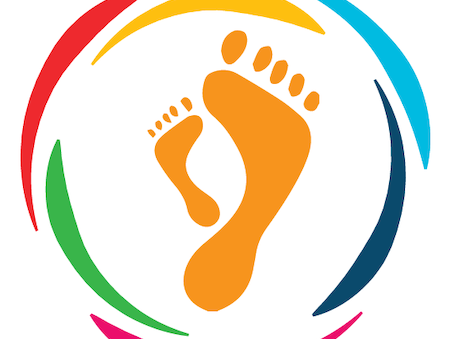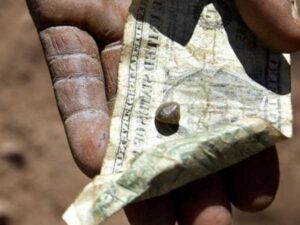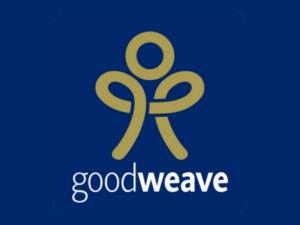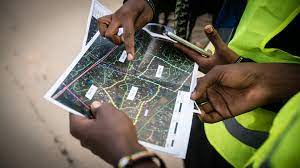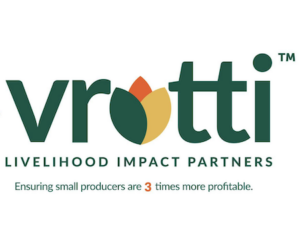Barefoot College International is a women-centered global network providing livelihood training to women in rural communities.
Rodrigo París of Barefoot College International spoke with Lissa Harris on April 14, 2023. Click here to read the full conversation with insights highlighted.
Lissa Harris: Could you please start off by introducing yourself and your organization and say a little bit about the problem that you’re working on?
Rodrigo París: My name is Rodrigo Paris. I’m originally from Colombia, based in Guatemala, Central America, and I’ve been working with Barefoot College International since 2013. It is about a decade of a long beautiful journey with this organization. Barefoot College International was created in India as a social organization now moving into an enterprise model in some way. Our mission vision is focused on reducing poverty in rural areas in India and in 93 countries in the world tackling SDGs [Sustainable Development Goals], 13 out of the 17 SDGs. Our approach for reducing poverty in rural communities is through education and to train and educate women. It’s a very gender focused oriented program. We started in India, as I mentioned, and now after wonderful progress in that subcontinent, we’ve expanded our operations and decentralized the approach to Africa, Latin America and the Pacific.
In the last seven years, we inaugurated three centers in Africa, one in Zanzibar, one in Madagascar and one in Senegal on the west coast. We inaugurated a center in Guatemala, the first one in the Americas, in 2022. And we’ll love to integrate the new one in Fiji, the first one for the Pacific, by the end of 2023. With these institutions, platforms, and connections, we want to be more local oriented in terms of the communities, what’s happening in each country, in each region, and how our programs and training with women could evolve in a more efficient and sustainable way.
Understanding the beautiful opportunities that we have in these regions and countries, but in connection with the brutal challenges in terms of poverty, migration, climate change, inequality that we are facing. We need to be closer to the communities to see the advances and the challenges, to start to change our approach day-by-day, month-by-month, year-by-year.
Lissa Harris: Can you talk a little bit about why you’re focusing on women in particular and trying to tackle rural poverty? What’s the importance of gender in this dimension?
Rodrigo París: Gender is fundamental. We believe a hundred percent that the women in rural areas are key change makers to reduce poverty and evolve communities in a more sustainable way. Why? Because women have roots in the communities, they have the knowledge. They are like big trees, big baobabs, with very good connections with the land and with the past and with the history heritage. If we invest in them, they are going to be a beautiful rainforest garden to produce energy, hope, examples for the families, for the younger ones and for the husbands in a very wise, generous, and strategic vision for the future. We believe that women in rural areas are the genius in these times because they keep the connection with the planet, with the realities, with nature. They have a good understanding about the past, about family and the roots, but they have a clear vision, how to solve problems. We need to put more resources, energy and focus on those fantastic humans that are in many countries waiting for our support and our guidance in some way to move on for the next step.
Lissa Harris: Can you talk about how you connect with the people that you’re serving and how do they benefit from your work?
Rodrigo París: We have a wonderful story that could be a really nice example. Last year, in 2022, we inaugurated the first Barefoot College International Center in Guatemala. After seven years of trying to organize, understand, push stakeholders, the government, et cetera, we finally organized the center located in the highlands of Guatemala. It is very well connected with the Mayan communities in that beautiful cloudy forest, and we started the first training program on solar to help women demystify the technology and bring energy to their families and villages. We have a wonderful student, Jullietta, she’s 69, illiterate, a mother of seven children and grandmother of 30 grandchildren. She attended the program for two months and she learned the whole logic of solar systems and photovoltaic technology. Now she has 35 families in her village with light in 2023.
This is an example of how a woman in a rural village in a short period of time, once provided with the clear opportunity, knowledge and access to education, created fantastic change, not only in terms of light and access to energy, but to be an example for the rest of the community. It is a clear sign of hope for humanity if we invest and do our work in the rural areas, especially with women.
Lissa Harris: Energy and photovoltaic, is that the main focus of your programs or is that an example of something that you use in this particular center that was working?
Rodrigo París: In some way, we are a social college lab, so we try to cover different programs. Solar is the flagship, but we have programs on coffee, beekeepers, we organize a curriculum to empower women in leadership, health issues, digital finances. Energy and solar is one of the most important because if you put light, if you bring energy, you not only change the physical situation in one home, but also inside the people. They see a future and they see hope. Energy and light are synonymous with freedom. It benefits individuals, but also villages and communities, so light is a sign of freedom and we need to have more people with freedom in this 21st century.
Lissa Harris: When you go into a new community where you haven’t had a center before, how do you build those relationships? How do you get connected with the communities on the ground?
Rodrigo París: It’s a constant exercise because each community is different in each country and according to the time, but I believe a hundred percent that trust is fundamental. We must create trust, we need to go to the communities in a very humble spirit, not to teach them anything, just to connect with them as humans. Our teams arrive in communities in different countries, not in private vehicles, but in public transportation with the people and they realize that we arrive with them, that we understand the complexity of their lives. These are basic signs that we are absolutely equal, and generating it from the beginning is a good bridge in terms of trust.
We also explain the challenges and obstacles that we are going to face during the process and during the programs with clarity and transparency so that the communities know, nothing is perfect, that we are humans and we are here to learn from you and you’ll learn from me. We have open minds and open hearts to connect easily with humans in every location where we work: Latin America, Southeast Asia, India and Africa.
Lissa Harris: Do you partner with local NGOs on the ground or community groups? Who do you look for when you’re kind of building partnerships?
Rodrigo París: It’s crucial for us to have local partners, NGOs, grassroots organizations, governments, multilaterals. We believe in Barefoot College International, that if we have the right partners, the projects are going to be really good. If we find a partner that is not okay, we will be in peril and we will put the community and the program at risk. Finding the right partner is absolutely a fundamental investment for the future of the project in every community in the world.
Lissa Harris: What makes your approach distinctive from other organizations that are working in this space on similar problems?
Rodrigo París: The way that we train and educate people because our experience over many years is that every single person can learn many things. Language is not an obstacle, but the traditional school in some way is a big barrier to our past problems. Our approach with the Gandhian style based on solidarity, generosity and empathy creates a connection between teachers and students. With body language, with colors, with codes, and with practice, every single woman is ready to overcome their mindset that they cannot do things. and, after working with us they feel committed and confident in their abilities and understanding.
This is a beautiful sign that we need to evaluate how the education system is working, or not working, because a lot of people are out of the system and waiting for different solutions outside of the traditional schools or universities. We want to connect with illiterate and semi literate women over 50, 60 years old. We see that, after a few days they learn and they are capable of doing magnificent things for themselves and for their communities.
Lissa Harris: I was going to ask if you could share an example that illustrates the impact of your work. You talked about the woman who started after a couple of months with the solar programs, but is there another example that you want to share?
Rodrigo París: We have many beautiful examples. We worked with a woman from Jordan who participated in our training a few years ago, and then she was the first woman from Jordan in the Bedouin area. It’s a very male dominated area and territory, but because of her, the men now have access to energy. I could say that every single woman is an example because at some point, we are not talking about numbers, we are talking about people. Maria in Guatemala or Mama Fatwa in Zanzibar are absolutely spectacular. We learn from them, we are not teaching them as I explained a few minutes ago, but they are our masters to see how humans are magnificent and can do magical things. We are only the facilitators to catalyze this process.
Lissa Harris: What lessons can be taken from your work that other people could learn from? Can you talk about any insights other people can draw from the work that you’re doing?
Rodrigo París: One big lesson today is to invest more time with the communities, not just go there busy to understand the project and then leave the community, but invest time with the community to connect with them better and to co-create solutions. The second one is that rural people are usually not a part of these debates and these ecosystems, but they have a lot to teach us about how to do things in a better way and how to reconnect humans with the environment and mother earth. The final point is that the work must be cooperative between many institutions, the government, the private sector, multilaterals, and grassroots organizations need to work together to increase the impact, not the numbers, but the impact that we are doing.
Lissa Harris: Can we talk about metrics? How do you measure your success and your progress?
Rodrigo París: We are generating a very good program in India to have these metrics, because our headquarters are in India and now the next stage is to have the same situation in Zanzibar, Senegal and Guatemala. A lot of institutions have their own metrics and I think that we are going to find really good things to combine with our own model to produce a very efficient way to see if the things that we are doing in terms of numbers are accurate.
When we talk about solar, in India, we have numbers on the smoke reduction per home, like hours of light the solar system produces, how many hours the children get back to study, how the health situation in the home improves because smoke in the house is reduced. There are a variety of indicators in terms of health, education, quality of life, and the number of houses with light in the village.
Lissa Harris: Sometimes we learn as much from things that don’t work as things that do. I’m wondering if you can describe something that you tried that didn’t work and that you learned something important from?
Rodrigo París: Our approach with Barefoot College International includes a genuine interest to work with governments, which is really important to influence public policy to expand the capacity of our impact, but is tricky to see which governments are okay to work with. It’s a big challenge for organizations to create transparency, connection, and partnership with governments, and to see if the agenda of the government is in some way parallel with our agenda. We are seeing a big setback in terms of public policies and governments doing things that don’t have a good impact for the future, so figuring out how to align with governments is crucial.
Lissa Harris: Can you share a more specific example of where you were trying to work with a local government and it didn’t work out?
Rodrigo París: In Guatemala, for example, we’ve been trying to work with the government for seven years, which spans three different governments and three different presidents. We worked with the Ministry of Education, the Ministry of Environment, and the Ministry of Poverty and Development. Over seven years, nothing has changed. There is still skepticism about our program and they don’t want to change the status quo, they don’t want to help indigenous people have more power because, if indigenous people have more power, the full agenda of the country will be changed for sure. Working with the government is a big obstacle in some countries, but it is necessary in terms of having a larger impact. In some countries, and especially in Guatemala, we faced this situation but still managed to organize the center and the program and the institution without the government.
The president of Guatemala gave us a presidential environmental medal in 2022 and said, “We are happy that Barefoot College International is doing the work that the government is not doing.” We are proud of this, but it’s sad to see that the government realized that we are doing the work that they should be doing. This is a good example of the paradox in terms of government relationships we are facing now in the Global South.
Lissa Harris: Would you approach another situation differently or what did you learn from that long struggle to work with the government?
Rodrigo París: We need to keep pushing to get something together at some point. We have a really good example in Zanzibar, where it’s been the opposite. We created a center in Zanzibar with the support of the president of the republic in 2015. There were some ups and downs with the government, some mistrust, some lack of transparency, but after seven years the situation is fantastic. We have a really good partnership with the government, we have a full connection with them. I see that in some way the institutions in the Global South are pretty weak, so the connection is not with the institution, it’s with the people. If we find the right person in the ministry of environment, in the president’s office, et cetera, we are in a good position to work in partnership with the government. So my advice is try to find the right person at the government level.
Lissa Harris: What do you think are the most important challenges that you’re facing that you haven’t yet been able to overcome?
Rodrigo París: First, even though we have a pretty good global approach and our methodologies across programs are pretty similar, we need to constantly adapt to each country, each community, and each moment. This flexibility is a big challenge at times because of the complexity of the problems, plus adapting to each situation, place, territory, and person is very demanding.
The second challenge is related to our internal process as an organization. I think that everybody is suffering after the disruption of the COVID pandemic. We are assessing where we are now, internally, to face the problems out there. We need to be super honest with ourselves as an organization about what’s going well and what we need to fix.
Lissa Harris: Can you talk about ways that you are working to advance system level change or the ways that you are working to bring about change on a broader level than just intervening in people’s individual lives?
Rodrigo París: Our journey started with very broad and very global goals. In partnership with the government of India, we managed to send rural women to be trained in India from 93 countries. We’ve been a global program since the beginning and we scaled up pretty quickly, training more women, bringing more communities around, exploring more countries, and creating more partners.
After the pandemic, we learned that it is better to focus on more local approaches. We’ve had to reduce our ego and be more humble to understand that it is very difficult at this moment if you are not the UN to cover global issues in a global perspective and still be empathetic and focus on basic things in a few territories with a few communities. The big thing to work for broad change is to connect the efforts of our community centers with governments to change public policy. That is how to have a bigger impact.
We believe that, in terms of our long-term strategy, we need to have more partners and more institutions with us to generate a greater impact and have a bigger voice. To influence policy, we need to have a horizontal negotiation with the governments, but to get to that point takes time, it takes evidence, and it takes more supporters and partners. I think that if we do the right thing, that’s what we can do in the next five to 10 years.
Lissa Harris: That’s something you’re working toward, building the platform to do more a little bit more down the road?
Rodrigo París: Absolutely, that is part of the strategy in the midterm. Now, the idea is to create the centers and make these platforms sustainable in the communities, in the territories, and to understand more about what’s going on. We have to be clear about the solutions, the problems, and then work with partners so that our voices are more powerful and have more credibility. I think that we’ll be ready to sit down with the government and say, this is a 50-50 negotiation.
Lissa Harris: What kind of policy changes are you looking to steer with this process?
Rodrigo París: To put emphasis on SDGs, to change the agenda for the governments in terms of social issues at the center, to reverse this idea that security has to be the number one point and all of the money has to be for the military and the police. We need to invest in people and reduce the lack of dignity that people are suffering. We need to change the agenda and reduce stereotypes that indigenous people are bad people. If we include indigenous people and rural people in the decision making processes, we are going to reach better solutions for the whole society. Our power and our evidence can help change public policies to include indigenous people in the debate.
Lissa Harris: What do you think is most needed from other actors and partners, like local governments and NGOs that you work with in the space to advance this kind of change? What do other people that you’re partnering with need to bring to the table?
Rodrigo París: There has to be more transparency and a clear agenda from the beginning. I believe that we are missing more long-term strategies. We are in a rush to fix a lot of situations and problems right now, and gather numbers to put in reports by the end of the year, and in that rush we are missing the long-term strategy. If we are trying to reduce poverty, to bring hope to the communities and to connect humans with the environment, this is a 10 or 20 year long strategy. How can we balance this anxiety to create reports and show numbers with long-term efforts to invest in the right people, in the right territory, and with the right partners?
Lissa Harris: How do you see your work evolving over the next five years?
Rodrigo París: First, we will be happy to have our centers that we just inaugurated a couple of years ago be sustainable. Second, we will use our centers in Africa, Latin America, the Pacific, and India as a social lab to be open minded to new understandings and doing things differently, based on the realities and learning experiences we have. Third, we will sustain the organization’s health in terms of our management performance and finances, so that we can support the work that we need to do in the communities. Five years will be a good time to really see us get back to a solid position as a robust institution after the disruptions from the pandemic and other suffering people are experiencing.
My last point is that it is important to do an ethical and moral reflection about our values. It’s important to leave our egos behind, not put money and numbers in front, or forget the core values that our work and connection with the planet is about. We need to put the values and the moral revolution in the center to overpass any single obstacle that we are going to face.
Lissa Harris: Thank you so much for your time and for being part of this project.
Click here to read the full conversation with insights highlighted.
Lissa Harris is a freelance reporter and science writer (MIT ’08) based in the Catskills of upstate New York. She currently writes about climate, energy, and environment issues from a local perspective for the Albany Times Union, her own Substack newsletter, and various other digital and print publications.
* This interview has been edited and condensed.
Read insights from other social innovations with a women-centered approach.

